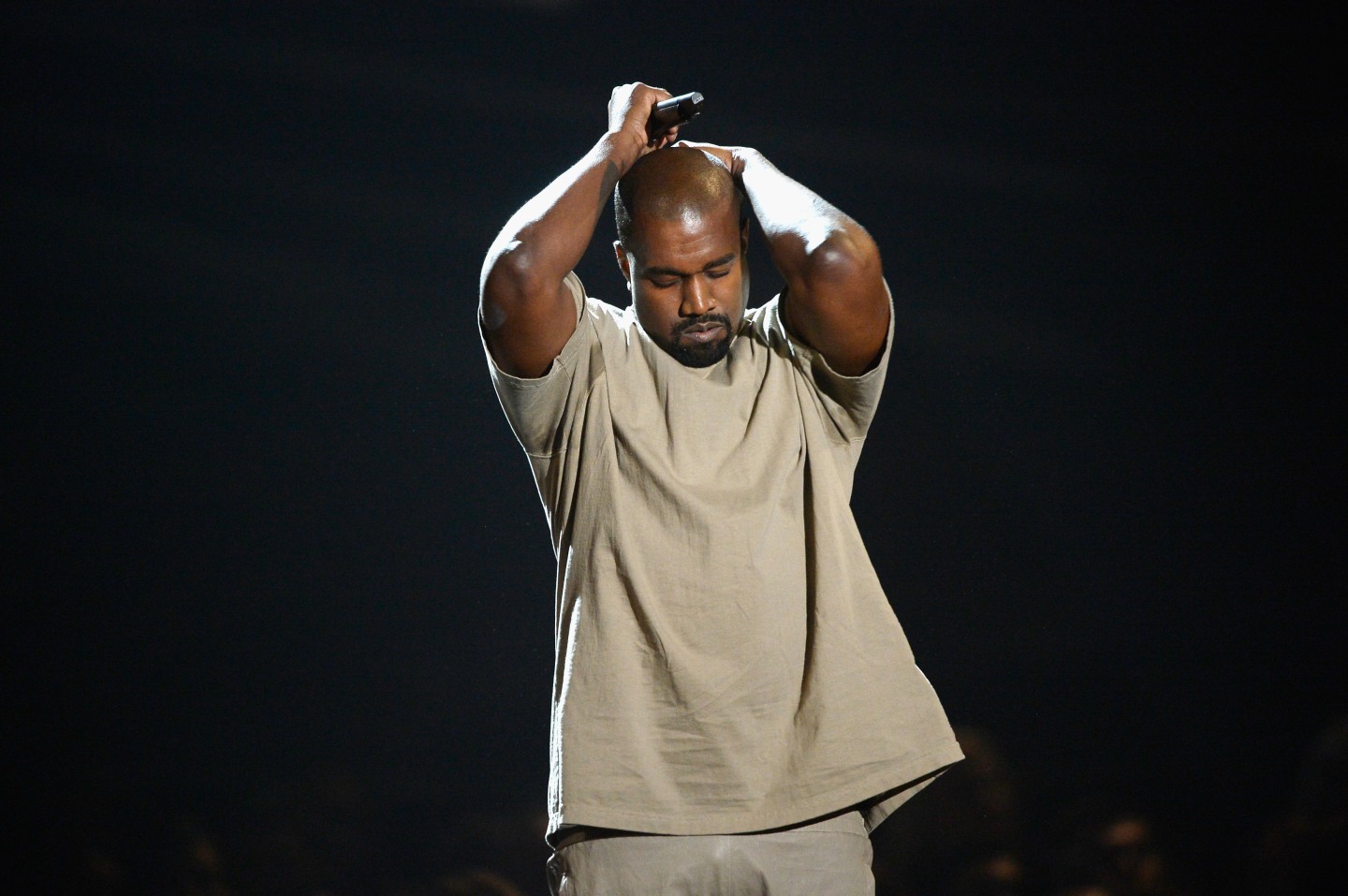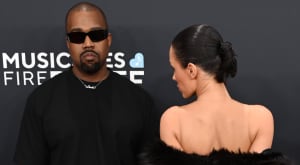 Photo by Kevork Djansezian/Getty Images
Photo by Kevork Djansezian/Getty Images
Over the past year, the question “Would Jesus Christ wear Yeezys?” has become less ridiculous. In 2019, Kanye West has dramatically embraced his Christian faith and tied its value set to his music: “Selah,” a song from his new gospel album Jesus Is King, finds West rapping about how his faith led him away from a long-delayed hip-hop album: “Everybody wanted Yandhi / Then Jesus Christ did the laundry.” There is a new question at the core of West’s art: is he a flawed man trying his hardest to live in Christ’s image — the best we can do, as Christianity teaches — or a hypocrite using religion to build his own Babel?
There’s a case to be made for both, but West won’t stop giving us reasons to focus on the latter. His near-ruinous stint as a bush-league redpilled troll was replaced with weekly sessions singing with a choir in the Black Baptist tradition — the Sunday Service, as it is known, seemed like a conciliatory gesture even to some of West’s least cynical fans. Others were disturbed at how a man who once referred to himself as “Yeezus” was now in charge of a large group of people wearing identical uniforms and cool sneakers. All the glory was for God, they’d protest, but West found ways to keep some for himself: As he performed with the Sunday Service at Coachella, a merch tent sold $50 socks and $225 sweatshirts (Jesus Is King has arrived with similarly priced goods). This business model feels more in line with the merchants Jesus drove from the temple than Christ himself.
One doesn’t need much Sunday School to start seeing the hypocrisies. West’s juggernaut status in the fashion industry, fabulous wealth, and trademark vanity have not been dramatically adjusted since coming to Christ. Black American art has never shied away from the church, but West’s new era recalls luxury televangelism more than bootstrap preacher (his friendships with Joel Osteen and Jerry Falwell Jr. track with this). Then, there is West’s support of the current American president, whose sadism is matched only by his incompetence at squeezing the vulnerable as tightly as his party wants.
A dissonance between gospel and expression of politics is nothing new, especially among evangelicals, who are generally right-wing. But West's Jesus journey runs parallel with the zeitgeist — whether by divine providence, talent, or some combination. Ideas of divine morality and those who would exploit it are urgent, and lie at the very top of America’s power centers; as with the Hurricane Katrina telethon and West’s struggles with the fashion industry, interviewing Kanye West with probing questions is an opportunity to understand some dimensions of the current moment, and perhaps fix what’s broken.
That’s why it was disappointing to see how interviewers approached West during his limited media tour. He sat down with Zane Lowe for two hours, Big Boy for 45 minutes, and for much fluffier appearances on Jimmy Kimmel Live! and The Late Late Show with James Corden. Lowe and Big Boy are both talented conversationalists capable of putting their subjects at ease, and a confrontational style would have admittedly been new territory for both of them.
But in his interview, Lowe expresses admiration for Greta Thunberg as an example of how it’s possible to rise to the moment. Unfortunately, he never quite gets there, and becomes visibly uncomfortable when West brings up Trump for the first time in their discussion. Big Boy is better in addressing West’s politics and the “cult” criticism of the Sunday Service, but his words are mostly just window dressing: “On a lot of stuff we’re going to have to agree to disagree,” Big Boy tells Kanye, “I’m here to celebrate you.”
West’s offensive mistruths about abortion and “the Democrats” go unchallenged; to Lowe specifically, the contradiction in West’s proclamation of his status as the greatest artist in history and his promotion of an album of Christian music called Jesus Is King is not worth pointing out. After the year he's had, watching Kanye West be subjected to less rigorous questioning than when he spoke with Jay Leno after interrupting Taylor Swift’s speech is truly a sight to behold.
Granted, it's tough not to have some sympathy for both interviewers. West has conflated criticism with a conspiracy to silence him, effectively making this misunderstanding an intractable and imposing pillar of his personality. "To mute an African-American's voice at this level is a form of slavery," he tells Big Boy; to Lowe, he rails against cancel culture while promoting a new album and IMAX film from a thousand-acre ranch in Wyoming. There’s also the public relations shield West’s faith provides; as a Trump supporter who also says he’s working for the Lord, in confronting one aspect of West's beliefs, you may be seen as challenging the other.
Still, Lowe and Big Boy are two influential media figures, and they both missed an opening to properly critique what West’s new role in our culture is. Last year, West visited the FADER's office for a meeting that resulted in published comments ranging from body-horror misogyny to slavery revisionism, and the event came to mind as I watched West espouse free speech to Zane Lowe: “We’re living in an age where someone could be fired for what they think, if they say it out loud.” West is blind to the demonic expression of his own fame: insatiable, too big to fail, unchallengeable by all except a privileged few. His musical genius has shielded him from scrutiny, but West’s recent heel-turn was a vital opportunity to ask adversarial questions that were much bigger than the man himself. It’s a shame that the opportunity wasn't seized upon.
